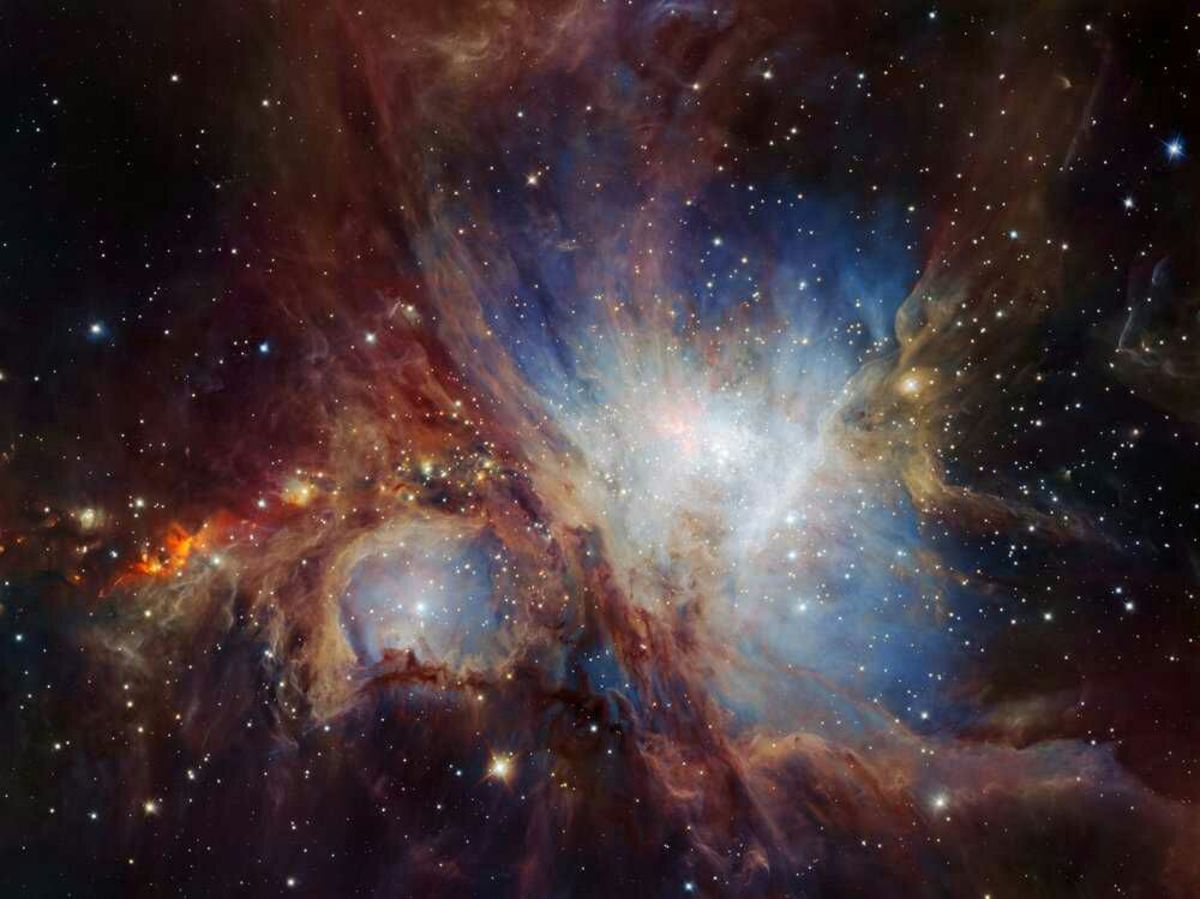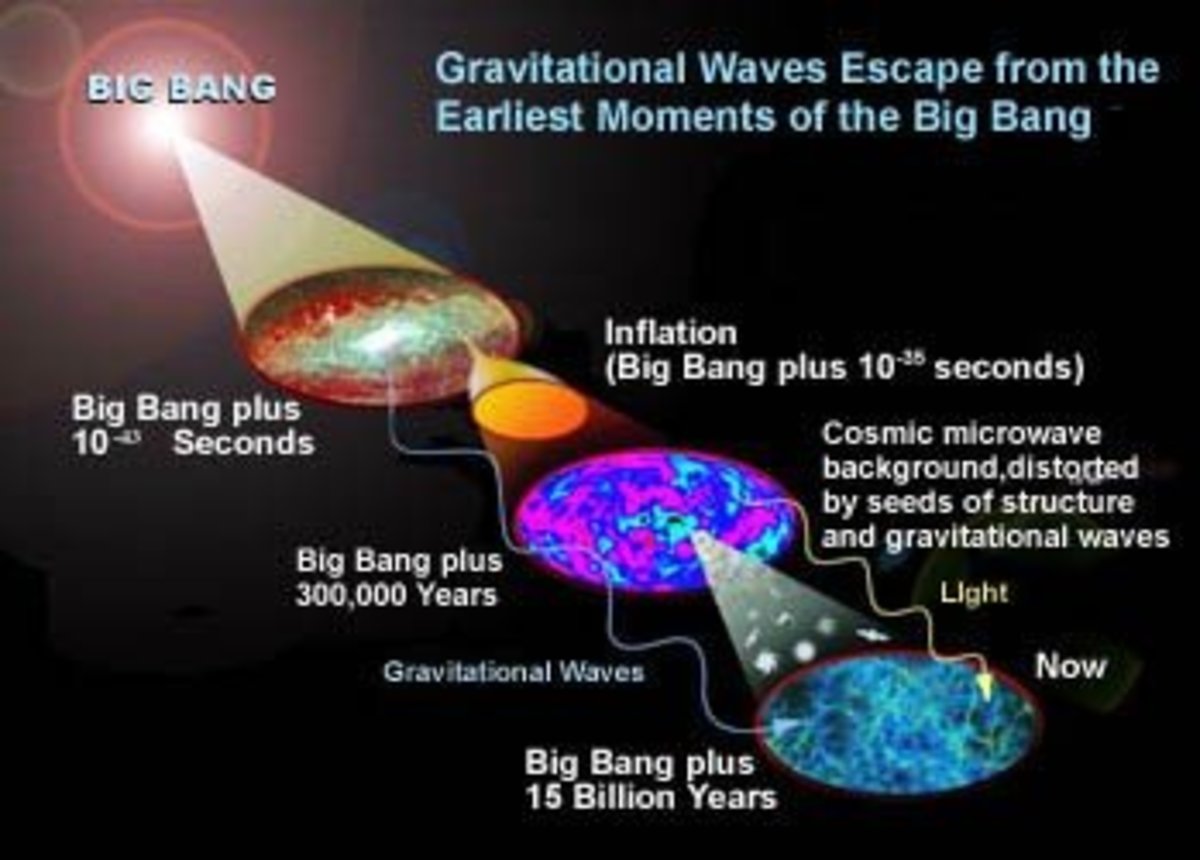Religion, Science, and Creation
Both science and theology attempt to answer life’s great question: what is the meaning of life? In order to answer this question, it would be helpful to know who or what created us. If a supreme being created us, we have some reason to believe there is a purpose to our existence. If, on the other hand, we are the product of a “Big Bang,” we are merely the result of chance, and thus, have little reason to think there is a higher purpose to our lives. Thus, the important question becomes: who, or what, is the source of our existence? If we can answer this question, we can put ourselves in a better position to determine the meaning of our existence. However, I will argue neither science nor religion is well suited to answer our first or second question. Related to this, I will address the issue of whether people rely too heavily on the belief that science is capable of finding the ultimate truth of everything it investigates.
Science accuses religion of being solely faith-based, and thus, dismissive of reason. Religion dismisses science as having an over-reliance on a method that purports to lead to truth. However, it seems both science and religion are guilty of a common fault: science and religion each offer an explanation of human creation, yet both explanations do not begin at the beginning. The scientific account of the creation of human life is the Big Bang theory. The religious account of the creation of human life is that God created humans. We will begin by briefly exploring each of these theories to determine the nature of their faults, and we will discuss what is meant by the criticism, ‘not beginning at the beginning.’
The Big Bang theory asserts that approximately 13 billion years ago, the creation of all life began when infinitely dense matter, approximately the size of an atom, expanded at a tremendous rate of speed. This “explosion” set off a process that would eventually lead to the creation of the universe, as well as the creation of humankind. The Big Bang did not take place in space; rather, the Big Bang is thought to have created space itself. Thus, according to the Big Bang theory, human life is a direct result of a process of evolution begun immediately after the Big Bang.
The religious account of creation holds that God created the heavens and the earth and all the living creatures. Humans were placed on earth so that they might ‘go forth and multiply,’ and were given free reign over the earth and its resources. Humans have an account of their creation through the book of Genesis, in the Bible. The book of Genesis begins with the infamous line “In the beginning,” thus the religious account of the creation of humankind begins from the moment God creates heaven and earth.
The fault of both of these creation theories is that neither account begins at the beginning. Many scientifically minded people charge religious believers with the fact that the religious account of creation begins arbitrarily. That is, religious believers hold that God created the universe and everything in it, but there is no credible explanation as to who created God. The faithful respond by saying that God has always existed (See Psalms, 90:2), but this answer is highly unsatisfactory to many people. It is inconceivable to the human mind that there could ever be something in existence that did not have a cause. If God exists and He did create humans, someone or something must have created Him. Thus, the scientific-minded dismiss the claims of the religious creationist for their lack of a credible explanation of the cause of God.
The scientific camp places their assurance of the creation of human life in the Big Bang theory. Yet, this theory succumbs to the same problem as the religious account: it too begins in an arbitrary spot. If the question posed to the faithful is, “who created God?” the question posed to scientists is, “where did the mater involved in the Big Bang come from?” If the Big Bang was supposedly the very beginning of the universe and there was nothing before the Big Bang, in what did the infinitely dense matter exist if even space itself did not yet exist?
As curious creatures, we have a desire to know as much as possible. But just as religion is ill equipped to give a satisfying answer as to the creator of God, science is ill equipped to give a credible explanation of where the matter involved in the Big Bang came from. What both sides of this argument need to admit is that the human mind is incapable of conceiving of an uncaused cause. We cannot rationally account for an effect without a cause, thus we equally cannot accept the fact that universe was uncaused, or that it was somehow its own cause. Yet neither of the two competing theories gives a credible account of what caused the cause of our existence.
Many have long dismissed the religious account of creation, and in its place, have adopted the Big Bang theory of creation. In this modern age, there is a reliance on reason to find truth in things. If people are told to believe something, they demand reasons to believe. No longer are people satisfied with blind faith. However, people must realize the limits of reason and the scientific method. All too often, people rely too heavily on the ability of science. For instance, philosopher Peter Atkins believes that science is a “…supreme device of the human intellect…” and also, that it is “omnicompetent;” thus, there isn’t anything that science cannot explain, or will not explain eventually (p. 349).
However, I would argue that science will only take us so close to the truth. It is inherent in our nature to keep asking questions, but at some point, we arrive at a spot where it is impossible to continue our questioning. This point is demonstrated in the following example by Martin Gardner, which is typical of human inquiry:
Why does the Earth go around the sun? Because it obeys the laws of gravity. Why
are there laws of gravity? Because…large masses distort space-time, causing
objects to move along geodesic paths. Why do objects take geodesic paths?
Because they are the shortest paths through space-time. Why do objects take the
shortest paths? Now we hit a stone wall (p. 355).
As much as we would like to think we are progressing towards a system of explanation that has the ability to answer all of life’s difficult questions, we must recognize that, as humans, our potential for understanding is somewhat limited. That is, we are limited in our reasoning skills. This is not to say that we are approaching this limit of reason anytime soon; rather, we simply need not think we are on the brink of discovering the answer to life’s oldest question. We still have much to explore and much to investigate before we reach the end of our natural ability to understand. But we must be honest with ourselves that we will eventually and inevitably arrive at a point where we can go no further, no matter how much progress is made in science. The fact remains that science will only carry us as far as human reason has the capability to push it.
Bibliography
Atkins, Peter, in Theodore Schick Jr., Readings in the Philosophy of Science, (Mountain View, CA: Mayfield, 2000).
Gardner, Martin, in Theodore Schick Jr., Readings in the Philosophy of Science, (Mountain View, CA: Mayfield, 2000).








